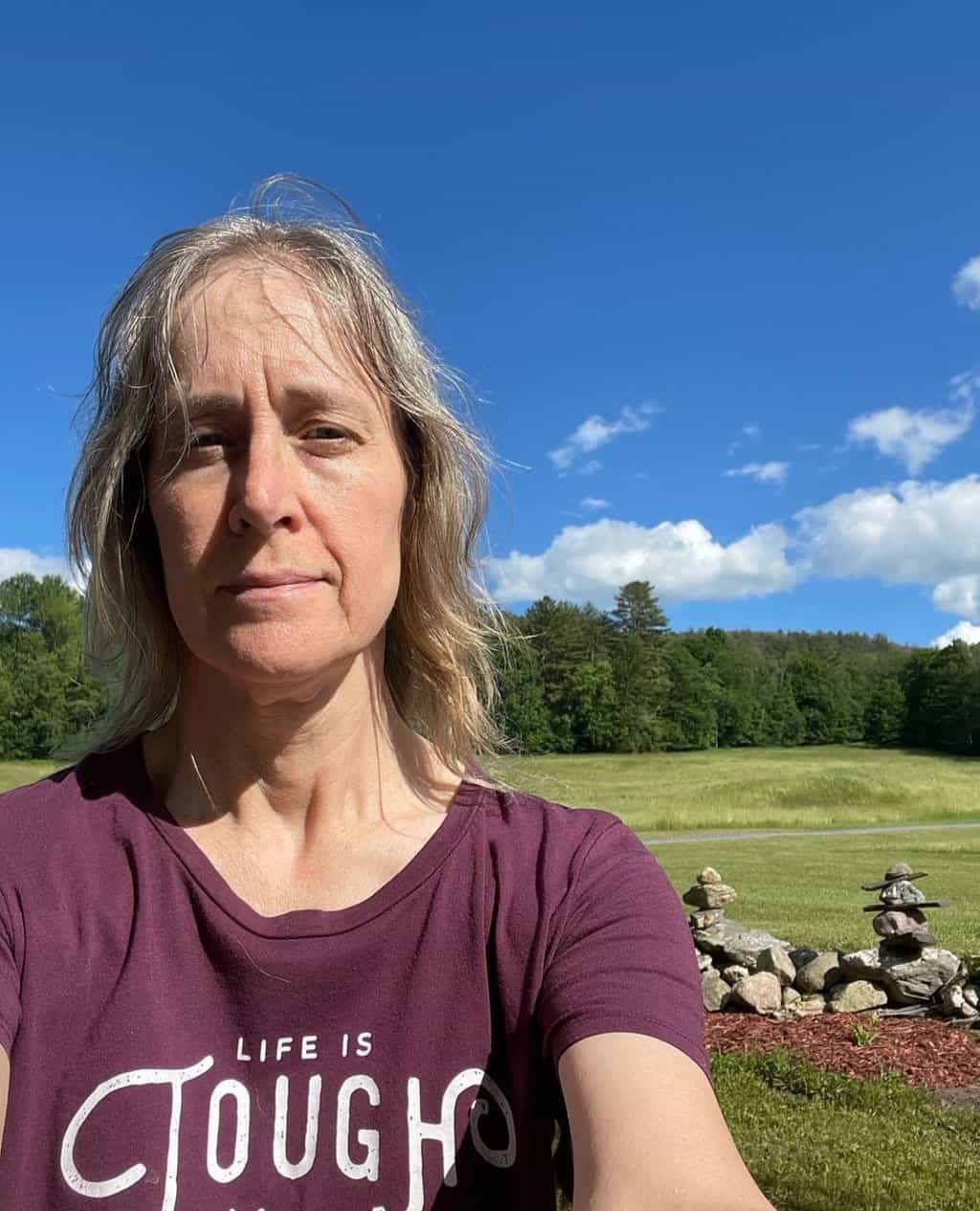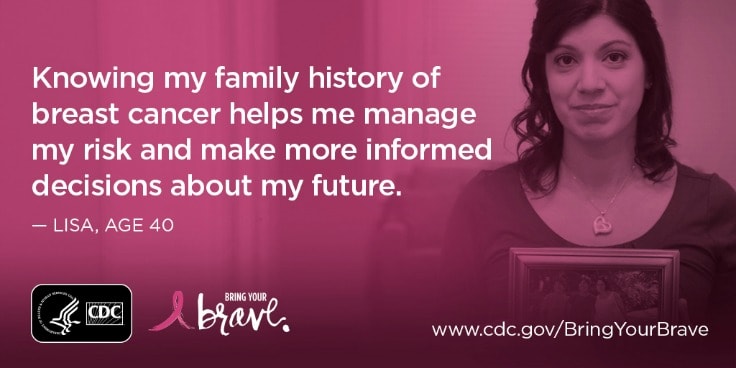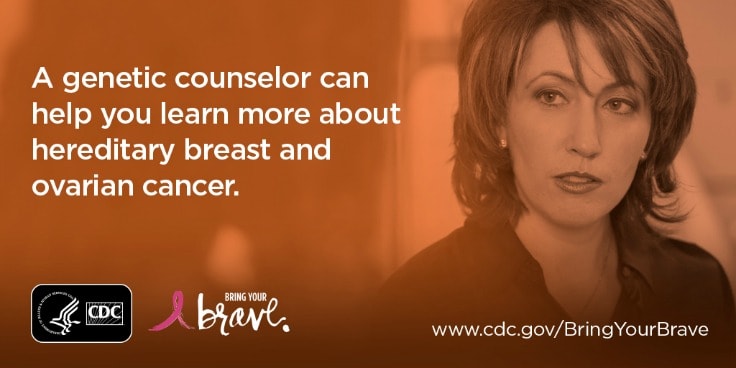Last Updated on September 23, 2020 by Ellen Christian
This is a sponsored post written by me on behalf of Centers for Disease Control and Prevention’s Bring Your Brave campaign. All opinions are 100% mine.
Posts may be sponsored. This post contains affiliate links, which means I will make a commission at no extra cost to you should you click through and make a purchase. As an Amazon Associate I earn from qualifying purchases.
11% of all cases of breast cancer in the United States affect women under the age of 45.
That statistic amazed me when I heard it. For some reason, I had always been under the impression that breast cancer didn’t really affect younger women. The truth is that when it is diagnosed in a younger woman, it’s often more likely to be hereditary and it’s more likely to be more aggressive and difficult to treat.
Bring Your Brave and Know Your Risks
Because it’s Breast Cancer Awareness Month, I want to encourage you all to know your risks. I know it’s not easy. Nobody likes to head to the doctor and ask “the question” but it’s important to be brave and know your risks. Breast cancer is the most common cancer in women in the United States. 11% of all cases of breast cancer in the United States affect women under the age of 45, however, many young women do not know they are at risk.
Every woman can benefit from learning the risk factors for breast cancer. In addition to the risk factors all women face, some put young women at a higher risk for getting breast cancer at a young age. If you are under the age of 45, you may have a higher risk for breast cancer if:
- You have close relatives who were diagnosed with breast cancer before the age of 45 or ovarian cancer at any age, especially if more than one relative was diagnosed or if a male relative had breast cancer.
- You have changes in certain breast cancer genes (BRCA1 and BRCA2), or have close relatives with these changes, but have not been tested yourself.
- You have Ashkenazi Jewish heritage.
- You received radiation therapy to the breast or chest during childhood or early adulthood.
- You have had breast cancer or certain other breast health problems, such as lobular carcinoma in situ (LCIS), ductal carcinoma in situ (DCIS), atypical ductal hyperplasia, or atypical lobular hyperplasia.
- You have been told that you have dense breasts on a mammogram.
I’m very thankful that breast cancer hasn’t touched my life personally, but it has touched million’s of women’s lives. It’s important that we’re proactive and take time to speak to our doctor’s about the risks of breast cancer. We can only be prepared if we are aware. Take a moment to read these women’s stories.
The CDC encourages women to take three important steps to understand their breast cancer risk:
- Know how your breasts normally look and feel and talk to your doctor if you notice anything unusual.
- Talk to your relatives about your family history of breast or ovarian cancer. Use CDC’s worksheet as a guide for your conversation.
- Talk to your doctor about your risk.
Bring Your Brave was launched in 2015 by the Centers for Disease Control and Prevention (CDC) and is its first breast cancer campaign specific to young women. Bring Your Brave aims to inspire young women to learn their risk for breast cancer, talk with their health care provider about their risk, and live a breast healthy lifestyle. The campaign tells real stories about young women whose lives have been affected by breast cancer. These stories about prevention, exploring personal and family history, risk, and talking with health care providers bring to life the idea that young women can be personally affected by breast cancer.
Please help raise awareness about breast cancer in young women and share your story on Facebook and Twitter using #BringYourBrave.

Ellen is a busy mom of a 24-year-old son and 29-year-old daughter. She owns six blogs and is addicted to social media. She believes that it doesn’t have to be difficult to lead a healthy life. She shares simple healthy living tips to show busy women how to lead fulfilling lives. If you’d like to work together, email info@confessionsofanover-workedmom.com to chat.




I am a bit embarrassed to say that I don’t think about this much and I am in the age category that many women pay more attention. I do like that this is catering to the younger women that could be affected too!
I’m sure there are a lot of women that don’t think about it. Hopefully this campaign will help!
The first step is being informed. It is a scary disease, but the more you learn, you may be able to catch it faster. Great read.
I agree, Aubrey. Thank you.
I hate that this disease even exists! I am constantly checking my breast sand get myself so worked up about it..super stressful!
It really is horrible, Amy!
Knowing your risk is so important! It is great that women are talking about this and taking the steps they need to take to stay healthy and manage their risk.
It really is, Anne.
I like that this caters to young women. It is something that many feel is just and “older person” disease!
That’s exactly it, Erika!